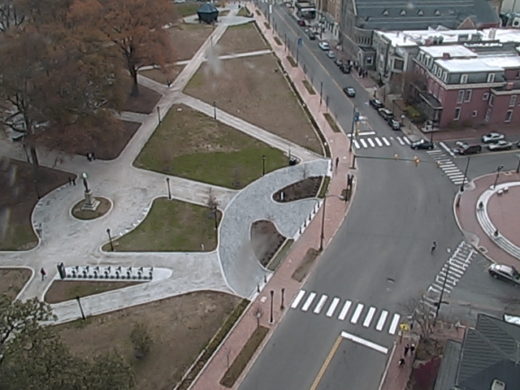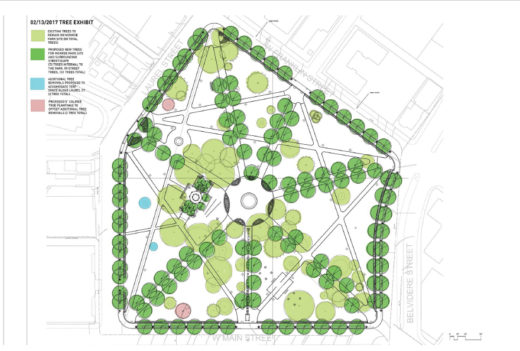Cherry Street neighbor (and Oregon Hill Neighborhood Association President) has a letter to the editor in today’s Times Dispatch.
Editor, Times-Dispatch:
Less than three months after reopening, Monroe Park is showing signs of massive design failures that need immediate remedial attention. The 22-month renovation took much longer than anticipated and came in way over budget, costing about $1 million an acre.
What will it cost to address these egregious planning blunders? The destruction of a significant portion of a wonderfully healthy tree canopy and other design and construction errors have caused the pathways to erode, sending large amounts of gravel dust into the sewer system where it will inevitably end up in the James River. The Sierra Club’s Fall of the James chapter has called the newly made-over park an environmental disaster. One of Richmond’s most popular gathering places, the renovation removed all public restroom facilities and the 1945 World War II memorial was desecrated by an ugly electrical apparatus. Large puddles of standing water languish on damaged lawns where there was never a problem before.
It didn’t need to be like this. A wonderful master plan was crafted and adopted by City Council but was tossed in favor of turning over the park by lease to a corporation weighted heavily by institutional and large corporate interests. Bad logic prevailed, removing the trees as well as a designated resource area for children. Funny that in the past, the Redskins Training Center also lost a significant portion of desirable tree canopy and in an amazing public letter of apology, then-Mayor Dwight Jones expressed contrition for that error.
Mayor Stoney has shown discomfort over the situation in Monroe Park but says he inherited the situation. Now the same planning firm that worked on Monroe Park is working on plans for the historic Pump House. Can we really afford more bad decisions with this architectural masterpiece?
Charles Woodson
Richmond
Even today, as seen from the VCU Ram Cam (photo above), the grass in Monroe Park still bears the scars of the corporate tents from almost a year ago. Again, Woodson and the Sierra Club ask for a comprehensive tree planting schedule to replace the destroyed canopy in the entire park. And bigger questions still remain- what happened to the public restrooms? How has $7.5 million been spent?



